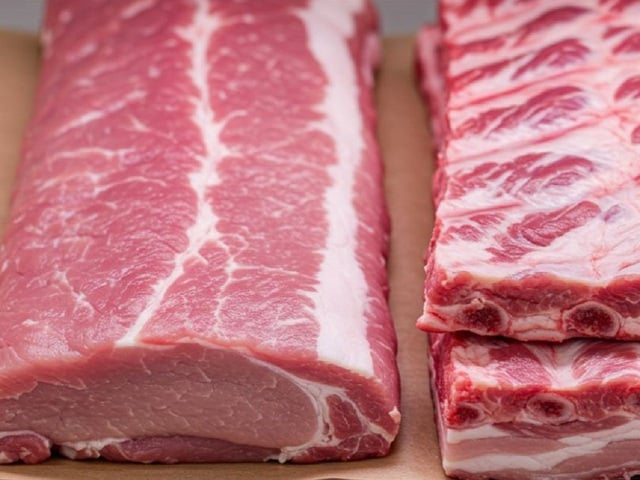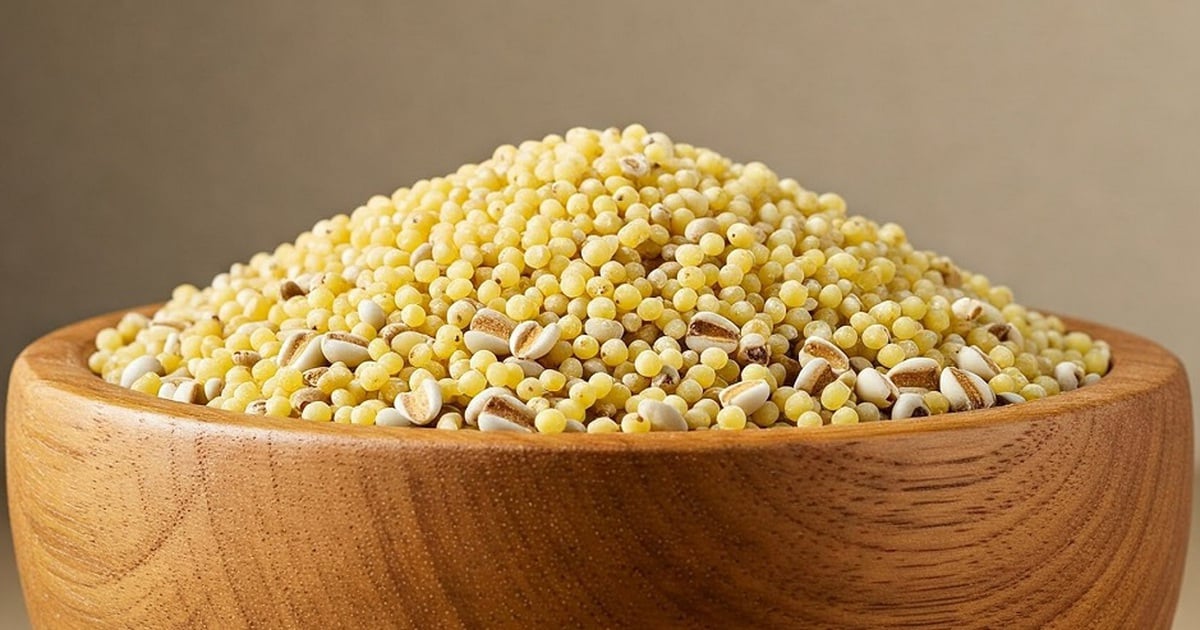Regularly eating pork, especially fatty cuts, will affect cholesterol levels due to the high saturated fat content in the meat. In addition to fatty meat, saturated fat is also found in animal organs, processed meat, fast food, fried foods and some types of cakes, according to the health website Healthline (USA).

Lean or super lean pork has low fat content, suitable for people who want to control blood cholesterol levels.
PHOTO: AI
Diets high in saturated fat increase the level of low-density lipoprotein (LDL) cholesterol in the blood. This type of cholesterol is also known as “bad” cholesterol because it increases the risk of heart disease and stroke.
However, not all pork will increase blood cholesterol. Choose to eat low-fat meat and prepare it with healthy methods, then pork is completely safe for health.
A study published in the Journal of Nutrition found that lean pork can be included in a healthy diet without affecting factors that increase the risk of cardiovascular disease.
For those who are controlling their cholesterol levels, choosing lean pork is essential. These lean cuts include pork loin, loin chops, and ribs, such as spare ribs and chops. Of these, pork loin has the least fat.
In addition, some ways of processing meat after buying it can also help reduce the amount of fat in the meat. For example, if you are afraid of pork fat, you can use a knife to cut off the fat on the meat before processing.
Besides, the way of preparing pork is also very important. Cooking methods such as frying and stir-frying will require a lot of oil and increase the amount of harmful fat in the dish. Instead, people should prioritize healthier cooking methods that use less oil such as water, steaming, boiling or pan-frying without oil.
To avoid increasing blood cholesterol levels, the amount of pork an adult should eat per meal should only be 100 - 150 grams of lean meat. People with high cholesterol should only eat about 50 - 100 grams of lean meat per meal, according to Health Site .
Source: https://thanhnien.vn/nguoi-co-cholesterol-cao-nen-an-thit-heo-the-nao-185250329211009699.htm


![[Photo] Looking back at the impressive moments of the Vietnamese rescue team in Myanmar](https://vstatic.vietnam.vn/vietnam/resource/IMAGE/2025/4/11/5623ca902a934e19b604c718265249d0)

![[Photo] "Beauties" participate in the parade rehearsal at Bien Hoa airport](https://vstatic.vietnam.vn/vietnam/resource/IMAGE/2025/4/11/155502af3384431e918de0e2e585d13a)


















![[Photo] Summary of parade practice in preparation for the April 30th celebration](https://vstatic.vietnam.vn/vietnam/resource/IMAGE/2025/4/11/78cfee0f2cc045b387ff1a4362b5950f)





























































Comment (0)